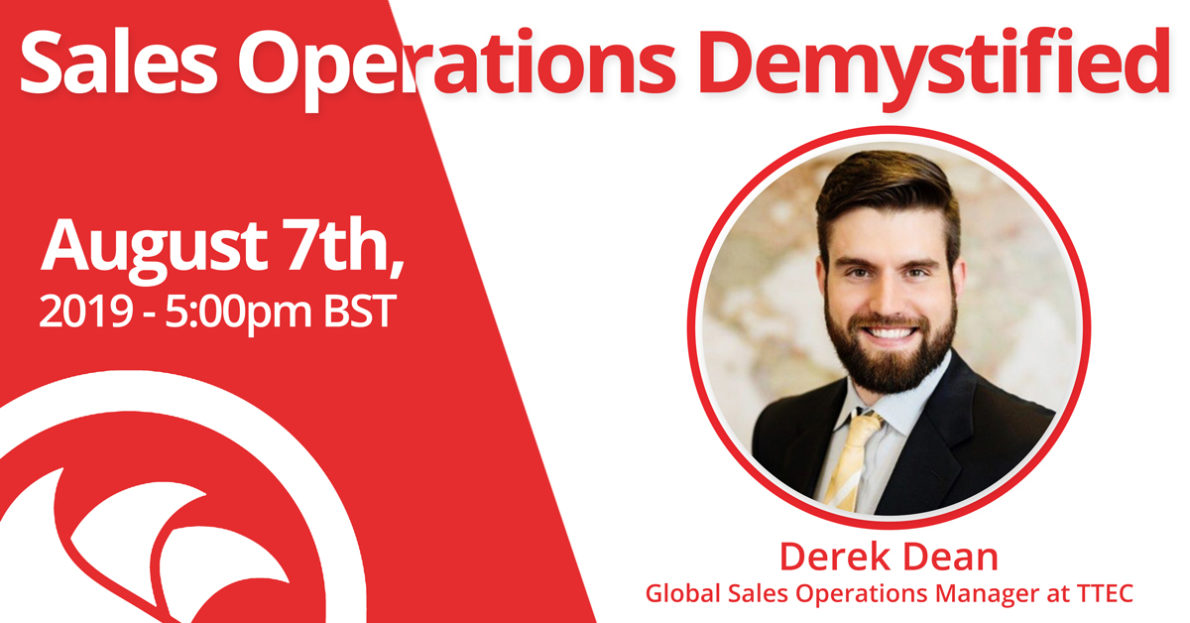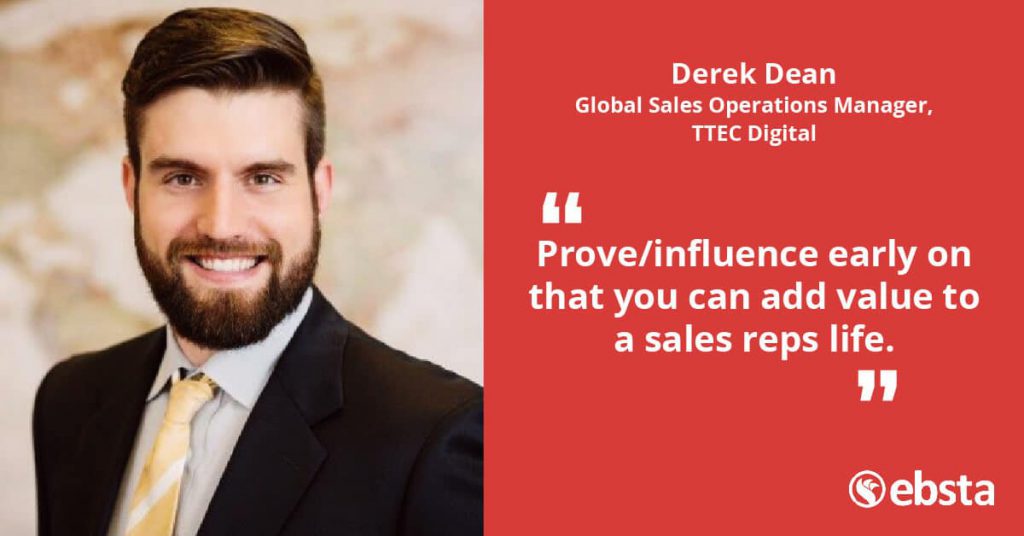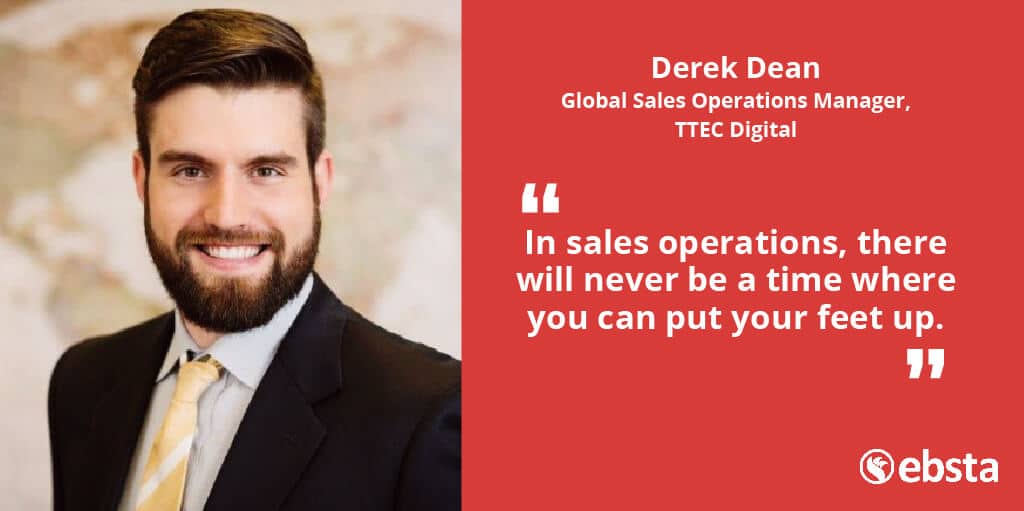Table of Contents
Share this article
Learn from the brightest minds how to predictably and efficiently grow revenue.
Related Content
Optimizing Sales Processes: Lauren Boynton of Qstream on SPICED Methodology
In this episode of Revenue Insights, host Guy is joined by Lauren Boynton, Vice President of Sales at Qstream, and they discuss SPICED sales methodology, customer retention and sales enablement. Together, they explore the fascinating journey of Lauren’s career from project management to sales leadership, the importance of customer success in driving revenue, and the…
Data-Driven Growth: Revolutionizing Sales Performance with Brad Cross, CRO at Upflow
This week on the Revenue Insights Podcast, Guy Rubin, CEO of Ebsta, speaks with Brad Cross, Chief Revenue Officer at Upflow, about data-driven growth. In this episode, Guy and Brad explore the evolution from product-led to value-led sales, the importance of effective qualification, and strategies for improving sales team performance. Brad Cross is the Chief…

Global Sales Operations Manager: Derek Dean of TTEC
Derek Dean jumped onto Sales Operations Demystified to share his knowledge and experience in Sales Operations. Check out all the other episodes of Sales Operations Demystified here.
Table of Contents
Video:
Podcast:
-
Tools Mentioned:
Derek: Yes, it’s kind of like being that liaison between the two and trying to do your best to make everyone’s jobs easier while also getting that data or getting that information that the sales leaders need at the same time. It’s a delicate balance.
Tom: Got It. Next question. Current sales of tech stack.
Derek: Yes. Salesforce is our CRM. Our marketing team uses [unintelligible 00:00:32] sales team and inside sales. I leverage LinkedIn sales navigator, zoom info for contacts and our analytics team leverages Power BI. We attempt to do a lot of things in salesforce when we can, especially since that’s the primary source of truth but when we need to get a little bit more advanced, we have a great analytics person on the team that is able to build all that out in Power BI.
Tom: Just for context for the listeners, approximately how many sales reps were you looking at and how many people in your Sales Ops team?
Derek: We probably have about 50 sellers across the company, but we have probably another 30 to 50 account managers as well. We have an internal demand gen team, probably about the size of about 10 in all, and sales operations is– We’ve got several people doing different things. We’ve got an analytics person within the sales enablement team, our director of sales tools and effectiveness has a couple of salesforce admins, so there’s probably about five or six of us in all that we all work really well together and we all have overlapping responsibilities at times. It’s nice having a redundancy there.
Tom: It sounds like quite general. It sounds like– because I ask a lot of people these question and I’m trying to understand the ideal ratio of like Sales Op resources to sales people. If you thought you were about in the middle here, take the account managers, if you count them as well, it’s about 5 to 100, which is about in the middle of the range as I see. Would you agree that that’s the right ratio so that’s one in, forget my math right, is 1:1:20?
Derek: Yes. I’ve actually worked for a couple of smaller businesses as well and that was basically the ratio about 1:20 with me being the primary Sales Ops person, and supporting not only just the BDs and reps, but those executive sales support and people who were also entering opportunities and contacting leads, et cetera. I think you’re right on.
Tom: Got it, okay. Maybe I’m going to tweet that out and see how many retweets I get. The tech stack seems pretty standard, nothing unusual there. The way you built that, did you define a sales force and then you kind of chose stuff after that? How did that evolve and were you involved in that process?
Derek: Yes, all of these tools were in place prior to my arrival. I’ve been at TTEC since the beginning of the year but my other experiences– It really has been deciding on what that CRM is and then building out from there. As you can see, everything is starting to integrate with Salesforce which has been fantastic. It’s really trying to leverage those tools that you need and trying to make one side of the house speak to the other.
Tom: Now, you mentioned being the data police earlier. How are you currently dealing with data policy? Are you responsible for that or are your CRM admins kind of responsible for driving that?
Derek: It’s really an all hands on deck. Each of us have different things that we’re looking at and evaluating. We’ve created several automated reports, several dashboards that the Sales team can use themselves as well as some individuals from other departments. Again, our Sales Ops team, they’re looking for certain criteria and data integrity. Our Finance teams are continuing to– Once deal’s closed, they’re evaluating to make sure all the numbers match up with SOWs and things like that. We’ve got a lot of eyes looking at it which is fantastic and you know those select admins that can go in and make those changes.
Tom: Got it. Now, moving on to the Sales team. What is your best strategy for getting them to do something that you want them to do?
Derek: Yes, I think it’s unique. Over the last three years, I’ve actually been working in Sales Ops, Sales Support as a remote employee. I think I’ve kind of had to go above and beyond to develop that trust, build those relationships, and to really establish that, “Hey, I’m here to help you. I want to know what are your pain points? What are some things that you would like to improve?” and kind of consolidate that from all individuals on the team and go forward with a strategy.
I think it’s all about one, building that trust and letting them know, I’m here to serve you. I’m here to help you in your role and make you perform better. Primarily focused on selling and reducing the time spent on the administrative task. I think it’s all about the relationship and making sure that you get the eye in before you roll out a new toy or roll out a new process and say, “Here you go, have at it.”
Tom: What you’re saying is that before you try and get them to do anything, you need to essentially show them that you want them to win and you’re there to help.
Derek: Exactly and I think that’s what I’ve tried to do in my already short time here at TTEC, is to go in and try to get those quick wins. It’s like, what can I do here immediately to get you to that next level while also encompassing the sales leaders strategies and the goals of the company while keeping that in mind too. It’s really that balance of the tactical and the strategic decisions that you have to monitor.
Tom: Definitely in that I think you guys are extremely valuable and that’s [unintelligible 00:07:13]. If you can do something for them that actually helps them and makes them all productive or however you help them. That starts the relationship off in like a really good frame for you then to influence and to do stuff down the road, is that what you meant?
Derek: Exactly, and it’s kind of tying that into the training and stuff and rolling out these new tools that you want to show them what’s relevant to them rather than just making a standard training program, a one-hour session for everyone. Really personalizing that and saying, “Hey, this is the benefit to you, this is why this is going to help you in your role.” Whether you’re a BD, whether you are a inside salesperson, whether you’re on the marketing side, and really just trying to make that more of a personalized approach.
Tom: Got it. Onboarding salespeople, how many salespeople have you guys on-boarded, if you have, and do you have a formal process of doing that?
Derek: Yes. Numbers-wise, I’m not exactly sure but we do have a formalized program. Whenever anyone joins TTEC we have really a fantastic company on boarding process. What’s required for week one, month one, month three et cetera, kind of those regular check-ins but for the sales team, I’m there either at the beginning, probably later in the first week and then ongoing after that so really training them on the sales tools, salesforce processes.
This is how we do certain things, this is where you go to for certain questions and really just providing them with everything that they need, kind of a single cheat sheet that says, “If you have questions about salesforce, here’s who you go to. If you have questions about products or services here’s where you go to.” Especially with information overload, I guess that’s with every company as soon as you start out. Just trying to condense that and make things simple.
Tom: Are you involved in the sales forecasting process?
Derek: Yes. Running those weekly forecast calls, monthly, quarterlies, that’s something that we’re continuing to evolve and continuing to challenge ourselves, monitoring trends, monitoring just the health of the overall pipeline. That’s something that’s definitely top of mind and one of my primary responsibilities.
Tom: Then, do you also have sales leadership in that meeting well or is that just you and the salespeople?
Derek: The forecast calls that I’m participating primarily are with the various sales leaders of the company, with all the different departments. There are times that I’ll always try to come in and sit in on those one-on-one calls, where possible, but most of the time it’s those group and departmental calls and I’m able to hear what’s going on from the forecast perspective with the sales team and then with our inside sales team as well. Kind of hearing what’s going on both sides of the funnel.
Tom: Got It. The sales leader or manager would have the individual forecasting calls with their reps and then you also have a group call where the sales leaders come on and that’s the meeting you attend or that you participate in.
Derek: Exactly. That’s correct.
Tom: Shifting now to making reps more productive. Do you have any campaigns at the moment or have you done anything on the path that have boosted productivity of your reps?
Derek: It’s tied in to the backbone of what I’ve tried to do and that’s building the trust and building the relationships in order to continue to tweak processes and put things more clearly for the sales team, whether it’s those guidance for success steps at each stage, just trying to continue to refine the process. It’s continuous improvement. There’s never going to be a time where you sit back as a Sales Ops person and say, “This is great. I’m done.”
There’s always something to be worked on, to be tweaked. With productivity, I think, a big thing that we’re trying to work on is just transparency with activities. Seeing the cadences of who’s reaching out at different times, where those hand-offs are taking place. Just making sure the left foot is in front of the right. We’ve got kind of our marching orders.
Tom: KPI that you’re currently tracking or the core KPI if you’re tracking, in those forecasting meetings, what are the KPIs that you find most useful?
Derek: Probably pretty standard there. The bookings versus targets for the month, for the quarter, and then the next quarter as well. We also have some additional– I’d mentioned our Power BI analysis and things like that. Kind of more of the in-depth stage durations and what it takes to win a deal. How often does an opportunity come in and hit every stage? Are we seeing jumps? Continuing to kind of monitor that.
Then, I think, I’ve heard this on the previous podcasts as well. The average sales cycle versus average deal size. Wanting to accelerate the time it takes to close a deal, but also seeing what the effect is of the revenue associated with that. That’s definitely, again, a balance. [laughs] I think that’s my theme of everything. There’s definitely a balance there.
Tom: That’s super interesting. I can’t remember you said that. I should remember, about how if you’re saying that if you try and speed time to close, that can impact the total revenue of the deal. Therefore, it may not be a good idea to totally optimize the velocity for your pipeline, right?
Derek: Right. I mean, yes, you start having those questions. Is it worth increasing your deal by 20% if it extends the sales cycle by 10 days? What are those trade-offs? Obviously, those are the things that we try to report up and then people a lot smarter than me [laughs] are making those decisions.
Tom: That’s like a classic sales operations problem, right? No one else in the business would, A. have the ability or B. would be involved in that decision?
Derek: Yes. Exactly. I mean, being there in the front lines and seeing the details and then rolling that up. Yes, it’s definitely great when you as a sales operations person can present something that wasn’t just visible or transparent at an eye glance view that you can do some data analysis and do some unique reporting to help tell a story and maybe impact decisions.
Tom: Okay, final question. Who have told you the most about sales operations?
Derek: I think what’s been interesting is I’ve never necessarily rolled up to a sales operations manager or a director of sales operations, but I’ve always ultimately reported to either a higher-level sales business development person or an operations person. I think I’ve tried to do my best to pull together everything that they’ve taught me of what it takes to run a successful operation, what are those key metrics that leadership likes to see.
I think that’s trying to do my best to incorporate all of those. I’ve been fortunate enough to have some great leaders and great mentors already here in my early career. I think that’s what’s driven me to that. The second part of that question or second part of that response, I want to applaud you and Ebsta for what you were doing with this podcast. This has been a tremendous resource for me personally.
I can only imagine how much being someone that has five years experience, there’s so much that I’m continuing to learn so I would have definitely loved to have been listening in a day one of sales operations. [chuckles] This would have been tremendous. Again, thank you for putting this on. This has been terrific for me personally.
Tom: My pleasure. You’re actually the first person that said that so that’s amazing. Thank you. Let me pick out the things I particularly liked. When they succeed, I succeed which is a great mindset for any person in sales operations. Being the data police I thought was quite funny. This is super interesting is proving earlier on that you can add value to a salesperson’s life early on in that relationship so later down the road when you’re trying to influence and to adopt a tool, change the process then they’re going to trust and believe that you truly want their best interests.
Then finally, this is also true. Never will there be a time when you’re done. No Sales Ops person is going to sit back and be like, “I’m all right, boys.”
Derek: [chuckles] You’ve got it. That’s right.
Tom: Those are the things I picked out. Derek, thanks so much for your time. Super insightful. I’m sorry for people who are listening to the recording, we’re actually a little bit late which was [unintelligible 00:17:43] my back. If anyone who was trying to watch live but then it dropped out [unintelligible 00:17:49] too late, I apologize to you, that won’t happen again. Derek, thanks so much for coming on the show.
Derek: Thank you, Tom. I appreciate it.
[00:17:59] [END OF AUDIO]




